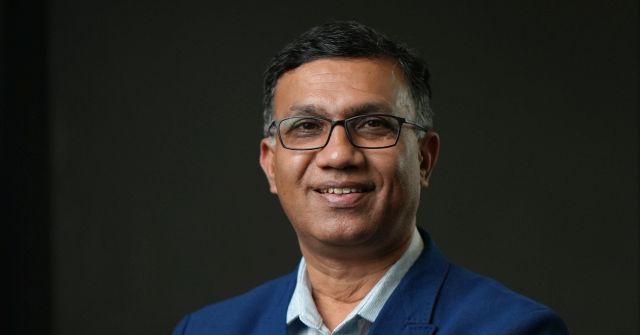
By 2030, we expect 10-15% of heavy commercial vehicles in India to run on hydrogen: Bosch’s Guruprasad Mudlapur


India’s booming automotive industry is ranked the third largest market, fuelled by a growing middle class seeking affordable, high-quality products. Guruprasad Mudlapur, president, Bosch Group, India, and managing director, Bosch Ltd, said technological innovation and localization will be crucial for ensuring continued success. By embracing digitalization, promoting localization, and adopting sustainable practices, it seeks to build a strong auto component sector. Bosch is also working toward greater adoption of EVs in India, said Mudlapur, adding that it is also considering green hydrogen to reduce emissions. Edited excerpts.
What innovations are you implementing with technology such as AI, digital twin among others to improve business revenues or customer experience?
At Bosch, we believe that AI has and shall continue to have a profound impact on both manufacturing and mobility. By automating tasks, optimizing processes, and improving decision-making, AI is helping to create a more efficient, productive, and sustainable future. At the Jaipur plant, for example, we use AI-enabled video analytics to optimize work processes, improving product quality and productivity. AI controls parameters in the heat treatment process, resulting in energy savings and quality enhancements. At the Chakan plant, AI-based analytics analyze the wear pattern of grinding wheels, extending their life and ensuring stable quality in part production. Again, at the Naganathapura plant, real-time analysis of process cycle times detects anomalies and identifies areas for optimization. Here, a digital twin integrates engineering data, simulations, and live sensor data to optimize temperature profiles for printed circuit board (PCB) assembly, ensuring compliance with quality standards and reducing calibration efforts.

What investments are you making in cutting-edge research and development (R&D) for automotive and other sectors?
Bosch is committed to making significant investments in R&D. We will continue our trajectory of innovation with continued investments in emerging technologies. These investments will be strategically directed towards pushing the boundaries of automotive and other sectors. However, our commitment extends beyond R&D as we plan to complement these efforts with investments in manufacturing, aligning with the pace of localization and volume growth. These investments enable Bosch to remain at the forefront of cutting-edge advancements, ensuring we meet the evolving needs of our industries and stakeholders.
What is the size and capability of your engineering and R&D teams?

At Bosch, we have one of the largest pools of engineering talent in the automotive space in India and have pioneered many of the developments locally. India is home to our largest software division outside Germany that has grown immensely in recent past, turning 25 in 2022. Globally, Bosch employs around 90,000 associates in R&D, of which approximately 48,000 are software engineers. The Bosch Group in India employs over 38,700 associates, of which over 30,000 are from our technology teams.
As Bosch is betting big on hydrogen technologies, can you tell us about your plans in this area?
Green hydrogen is crucial for achieving a climate-neutral world. The benefits of a hydrogen engine are vast, as it can replace diesel engines sustainably. In line with the government's goal of energy self-reliance by 2047, hydrogen is key in India's mobility sector. At Bosch India, we are leading the development of hydrogen engine technology with our parent company, investing in infrastructure for engineering and testing. Our focus is on developing components and systems for hydrogen engines, as well as safety regulations and standards. We have already introduced a demonstrator vehicle powered by a hydrogen engine in Bangalore, India, and are conducting pilot projects with commercial vehicle manufacturers globally. Our next milestone is the unveiling of a Bharat Stage 6 Phase II (BS6.2), also known as Real Driving Emissions (RDE) norms, hydrogen engine truck later this year. By 2030, we expect 10-15% of heavy commercial vehicles in India to run on hydrogen.

Are you planning to expand by hiring new talent or upskilling existing employees in the next year?
It would be a mix of both. Hiring will focus on key areas such as R&D, hydrogen, electrification, and manufacturing. Our hiring strategy will be tailored to specific segments based on internal demand. With the evolving mobility landscape, we need highly skilled individuals to navigate changes in value chain, business models, and software features. So, it would be imperative for us to upskill our associates and prepare them for the transition, both in terms of, mindset and capabilities to engineer this change.
When benchmarking against competitors, in which key areas do you see a need to increase your focus?

Bosch has consistently stayed ahead of most OEMs in meeting their technology requirements in the automotive industry. Our ability to innovate ahead of the market is our key strength. As a technology company, we will continue to do so. With India's rapid progress towards cleaner transportation, we will prioritize the development of EV components. However, our commitment to safety and driver assistance systems will remain unchanged. Additionally, we will enhance our focus on H2 fuel technologies, including H2ICE, or hydrogen internal combustion engine, and, in the near future, Fuel cell electric vehicles (FCEVs).
